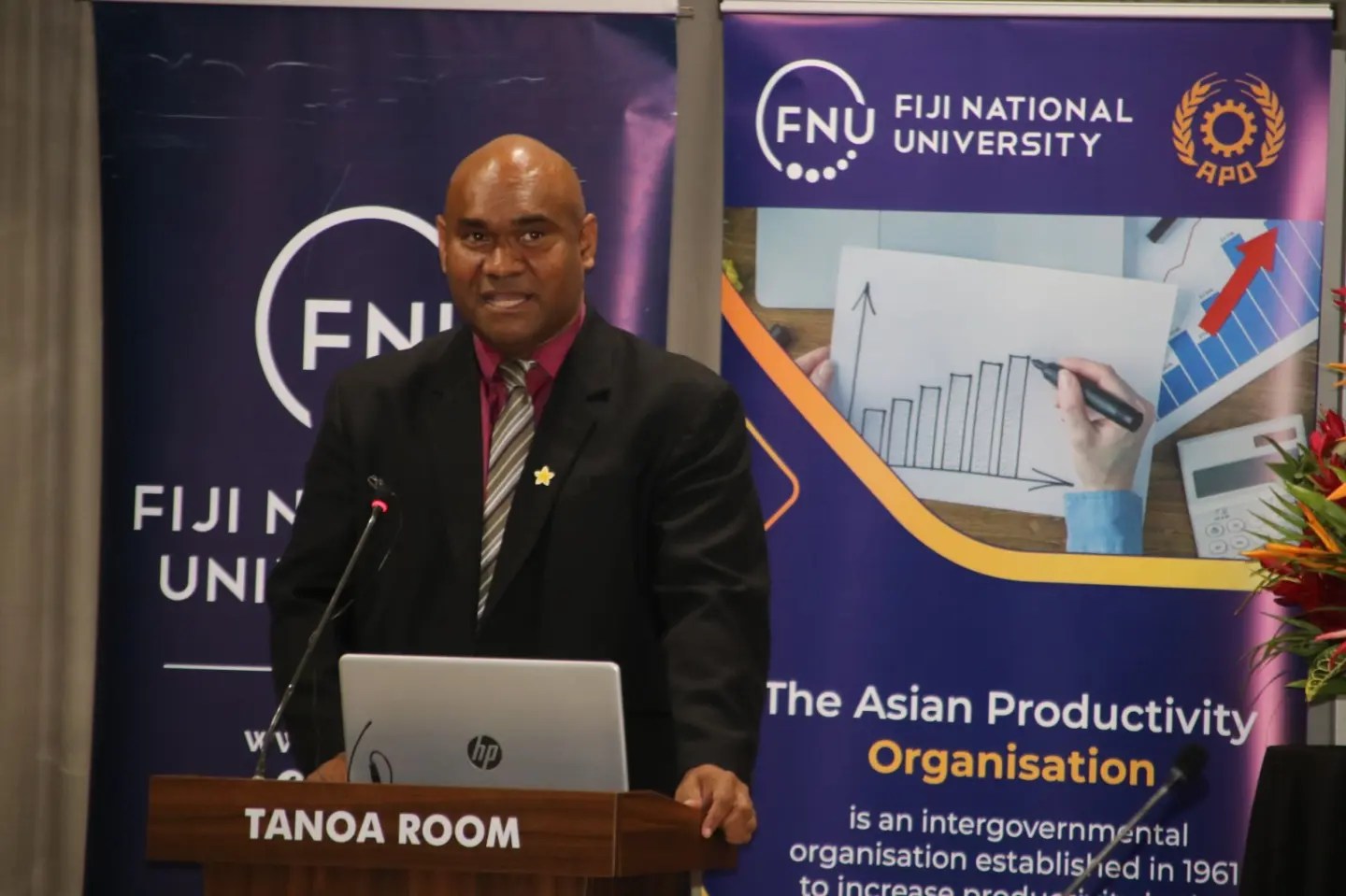EACH year, avoidable workplace incidents cost the economy dearly, not only in financial terms but for the well-being of the people, says Fiji National University Pro-Vice Chancellor TVET Dr Isimeli Tagicakiverata.
Dr Tagicakiverata told the Fiji National University’s National Training and Productivity Centre’s conference in Nadi that behind every statistic is a story, a family, a future interrupted.
“By strengthening our approach to OHS, we are not only saving lives but preserving livelihoods and reinforcing the very fabric of our communities,” he said.
Dr Tagicakiverata said workplace safety is a national imperative in a developing nation like Fiji, where economic growth relies heavily on sectors such as construction, tourism, agriculture and manufacturing.
“Occupational health and safety are also directly tied to sustainable development.
“If we want our industries to grow, we must ensure they do so responsibly, with the welfare of workers at the centre. By investing in modern safety practices, we attract better partnerships, enhance our competitiveness, and show that Fiji is ready for the demands of a 21st century economy.”
Dr Tagicakiverata said the OHS conference was a platform to share best practices, explore emerging technologies, and build stronger alliances between government, academia and the private sector.
“Through our NTPC, we are integrating artificial intelligence, digital simulations, and smart analytics into our training modules to better prepare workers and organisations for the risks and realities of the modern workplace.”
Dr Tagicakiverata said FNU was training a new generation of safety leaders who are agile, tech-savvy, and ethically grounded.
“Health and safety must evolve alongside our workplaces. Whether in construction, healthcare, manufacturing, tourism, or ICT, AI can help us prevent accidents before they happen.”



